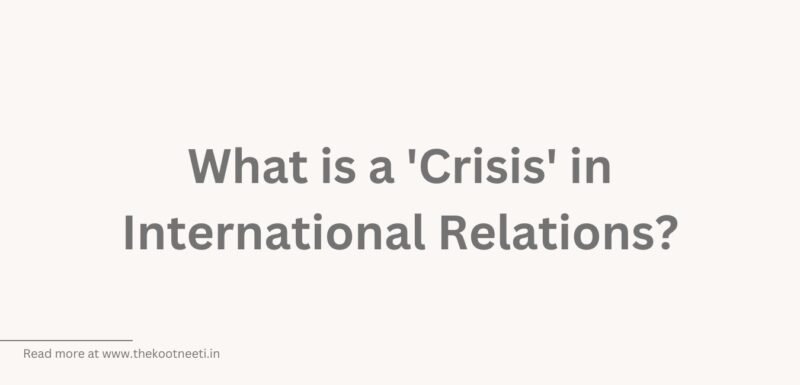What is a ‘Crisis’ in International Relations?

In international relations, a crisis refers to a situation in which there is a significant risk of conflict or instability between states or other actors. A crisis may involve a specific event or issue that threatens the stability of the international system, or it may be a broader, ongoing conflict or tension.
Crises in international relations can take many forms, such as military conflicts, economic disputes, or political crises. They can also involve a range of issues, such as territorial disputes, resource conflicts, or ideological differences.
Crises can have significant consequences for international relations and may lead to increased tensions, economic disruption, and even military conflict. As a result, they often require careful diplomacy and crisis management in order to prevent or resolve the crisis and maintain international stability.
There are many factors that can contribute to the emergence of a crisis in international relations, including power imbalances, economic disparities, and ideological differences. Crisis management involves the use of diplomatic, economic, and other tools to address the underlying issues and prevent the crisis from escalating.



















